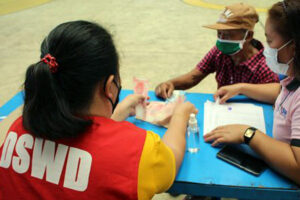THE GOVERNMENT needs to spend more on social spending and agriculture instead of infrastructure projects to stimulate economic development amid signs of slowing growth, an economist said on Tuesday.
The government should fund social projects, agricultural infrastructure, and provide support for industry to stoke economic growth as trade and investment slump, Jose Enrique A. Africa, executive director at think tank IBON Foundation, said.
“The only thing the government can do to support growth is to spend more… on high-impact, high-multiplier activities,” he said in a briefing.
“We strongly disagree that infrastructure spending is a high-multiplier activity, especially for big-ticket projects, as they are very import-dependent,” he added.
The Philippines won’t meet its target gross domestic product growth of 6-7%, Mr. Africa added, noting that slowing household spending, slumping foreign investment, and weak domestic capital formation are hampering growth.
The Bangko Sentral ng Pilipinas reported that foreign direct investment (FDI) inflows fell 36.9% to $556 million in April. This was the lowest monthly reading for FDI inflows in 10 months, or since the $541 million posted in June last year.
Month on month, net inflows dropped 19% from March.
On the other hand, household spending rose 4.6% in the first quarter, against 5.3% in the fourth quarter and 6.4% a year earlier, according to the Philippine Statistics Authority (PSA).
“Unless there’s going to be a major shift in terms of government spending, it’s unlikely (to meet growth targets),” he said.
Funding big-ticket infrastructure projects does not offer “bang for the buck” as most of it is spent on materials, equipment, and overseas contractors, he said, and won’t help in developing domestic industry, which could stimulate growth.
The government has 185 infrastructure flagship projects valued at P9.54 trillion under the Marcos administration’s “Build Better More” program.
While increasing government spending on social projects won’t “generate financial returns,” it would help increase consumer spending, benefiting domestic industry, he added.
“It’s going to be money spent on Filipinos, and that’s money Filipinos will spend domestically,” said Mr. Africa. “It won’t generate financial returns, but (it will) … increase purchasing power and spending.”
The government should also focus on irrigation projects to enable the agriculture industry to increase food production, eventually making food cheaper, he said.
He advocated the development of a domestic electronics industry to establish a stronger foundation for the economy, instead of relying on foreign investments, he said.
Electronic products were the top export in May, accounting for 56.2% of total Philippine exports during the period, bringing in $3.56 billion, the PSA said last week.
“Much of our exports are electronic components. Why not find that segment of electronic components where the Philippines already has supply and consumer capacity, then go all out to support that?,” he said. — Kenneth Christiane L. Basilio
